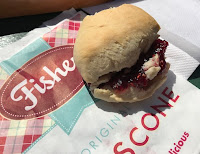This was my first time attending this event, and to say that is was overwhelming would be a severe understatement.
It was…mind-boggling!
I’ve done my fair share of wonderful signings through the years, and I live for the energizing jolts I get from readers when I go to them. Not to mention the sheer joy of meeting in the flesh people I now consider good friends. That is SUCH a bonus!
And Penned? It was off the charts electric!
Well put together, this event was huge. And I loved every single crazy moment of it! It was non-stop fun!
But, as I sat there, taking in all of the hustle and bustle as avid readers strolled through the aisles, their eyes alight with excitement as they pulled their carts of books so happily behind them, or carried their heavy totes as if they weighed nothing…I realized something.
There is absolutely nothing better than that moment when you fully understand that you are in the presence of true readers.
It hit me like a thunderbolt from above as I sat there quietly sipping my coffee as people began pouring in.
In a day filled with cell phones, binge-watching TV, video game playing technology, these amazing people simply still just LOVE books! They love everything about them. And they love the storytellers who share them!
As an author, I know there are those fabulous creatures out there who love the written word. I’m blessed to have an amazing group of readers. But, in a world of social media, we sometimes forget to really see how much our readers love books. They really, truly love everything about them.
And I needed that. I needed to breathe in all of that enthusiasm and eagerness on an epic scale. I watched. I listened to them talk with my fellow authors, saw their smiles genuine and happy and filled with glee, and I thought to myself…My God, they really, really do love books! (insert Sally Field Oscar acceptance speech here. Lol)
And it is invigorating as all get out! This type of genuine excitement feeds a writer’s soul more than anything else possibly could. It make us realize that what we do matters!
That’s not the case, thankfully.
Readers are the most amazing people on earth. They really are.
They live for losing themselves to magical places and using their imaginations. They love getting lost in worlds created by authors who love weaving those tales, and I am grateful for each and every one.
Whether you read my books, or the books of others…the point is, you are reading!!! And THAT, my friends, is what matters!
So, from the bottom of my heart…Thank you!
And always remember to live, love, laugh, and READ!






















































